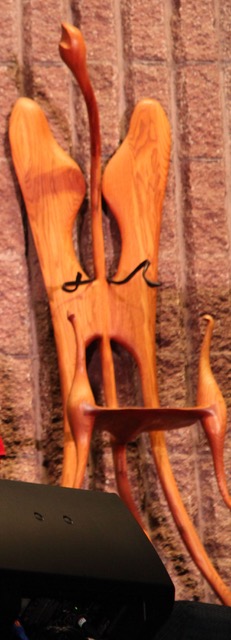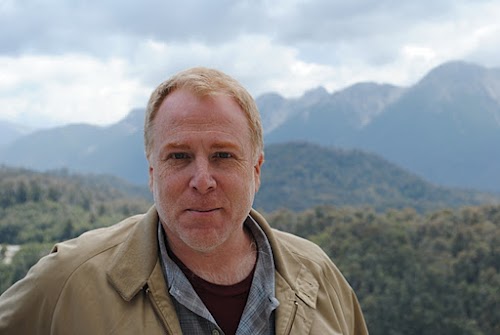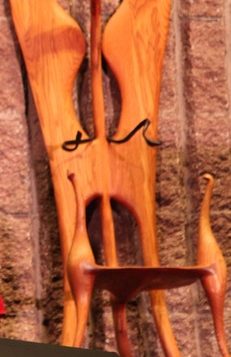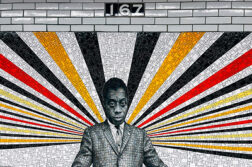I.
1973 started on a Monday. Nineteen days later, Richard Nixon was inaugurated for a second term, seven days after that the Paris Peace Accords were signed. At fourteen years old, I did not really understand the war, but the war and I had grown up together. Now, it had begun its end game and I had begun puberty. And then, in late October of 1973, I went with my father and Aaron Foxman to our suburban temple to hear a lecture by David Halberstam— a famous author, and New York Timesreporter— on a book tour talking about the men who had dreamed up the Vietnam War. That night, waiting for the lecture to begin, Aaron said something that for the first time in my life made me realize that being a homosexual might seriously complicate things.
II.
Aaron Foxman (Ron) was everything my father was not: educated, comfortable with tradition and modern culture, and, most of all, at ease with himself. He spoke French and played the violin, both fluently. My father’s idea of social climbing was to have friends with greater educational achievement than he had. As a result, he was in league, if not friends, with a lot of physicians. Ron, though not a physician, fit this category. His fluency in foreign languages and musical expression, the erudition—these things added up to substitute credits for medical courses not taken. My father wanted to be friends with someone who spoke French and played the violin. That fact that he and Ron genuinely liked each other was a bonus.
What my father sought, particularly with medical doctors, was to be in the club. In the grammar of the Romance languages, he wanted to refer to men of high degree en el tuteo, dans le tutoiement, in the familiar. That was his admission to the circle, his fraternity pin, his secret handshake. This explains why my father invited Ron Foxman to hear Halberstam that mid-autumn evening; not that my father wanted to go to the event, but that he wanted to go to the event with Ron. I’m not sure why I wanted to go, but I did.
III.

The temple had Torah holders on either side of the ark. When the holy scrolls weren’t being read, the Rabbis rested them on these custom-sculptured functional works of art. They were modern; in fact, they were postmodern. They loosely took the outline of a stick figure; a beautiful, wood-carved, oddly well-proportioned scarecrow perhaps. You could see the outline of the body: the legs down to the floor for stability, wide and muscular at the thighs, then straight and stable to the floor. It took little imagination to see the arms reaching upward to frame the holy scroll, to bound its resting place to where the lap would be on a body stretched open and vulnerable. And on that place where the lap of the wooden body would be, there was an extension—a shelf where the scrolls would sit. Oddly, though, almost without purpose—or perhaps with all too much purpose—protruding upward from below the shelf, from the point where the legs meet, up past the shelf and about a third of the way up the arms was a single, thick, curiously-curved, highly-polished wooden shaft. It faced directly upward and, at the end, has a flared enlargement. The end appeared knob-like.
Ron Foxman was just making casual conversation when he pointed at the Torah holder on the right and said to my father: “Well, if that doesn’t look like an erect penis jutting out from a pair of thighs, then I don’t know what does.”
I did not look up from the program I was pretending to read, but the tectonic plates of my repressed fourteen-year-old sexual world had seismically shifted. Ron’s casual conversation, his breezy comment, reverberated deeply. I was embarrassed and titillated and—on hearing the words “erect penis”—was instantly overcome by a rush of thoughts and images: adults have sex lives! I would have a sex life when I became an adult! Immediately, the future seemed brighter. After all, I wasn’t the only one who had seen sexual angels in the architecture; I felt connected to Ron. He’d seen it, too.
I knew I would have to look at my father some time, but there and then, knowing his prudishness, knowing that it would embarrass him more than it did me, I did my best not to look at him. To this day, I don’t know how my father reacted. We never spoke of it. Ron had said the words “erect penis” out loud in temple to describe the Torah holders, and I just kept my head down, suppressing a smile, for as long as I could.
IV.
The last time I saw Aaron Foxman was 24 years later on a Monday night in November of 1997 at my sister Sandy’s house. We were sitting Shiva for my father, who had died the Friday evening before, and Ron and Fay came to pay their respects to my mother.
We sat at the kitchen table, and Fay and my mother, not yet an Alzheimer’s casualty, talked between themselves quietly in that almost audible whisper that elderly Jewish women use when talking about death. Ron and I talked about my father and, among other things, we reminisced about our literary moment together nearly a quarter of a century earlier. Neither of us mentioned the Torah holders. I believe he’d forgotten them, a discussion that for him had long since run its course. To Ron, his candor, his free association, his willingness to speak freely, had not been noteworthy; it had just been his way of life.
To me, it had been An Incident. To me, it started the clock running on sexual time.

Marc Weiner, associate dean and professor at Rutgers, New Brunswick, is also a writer of essays, poetry, and music.







Discussion3 Comments
Great story! Thoughtful and touching! Funny too!
Thanks for sharing !
Mark
Brilliant and beautifully written, as always. Maybe that’s why I like hanging out with you. You enrich my life!
Love,
Susan
An excellent read, by an excellent writer. It My next question is, when will you be writing another?